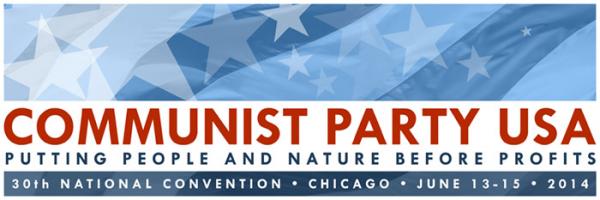
Submitted by Art Perlo, New Haven, CT
I was on the workers’ organizing committee for a union for clerical and technical workers at Yale University in the early 1980s. This was during Reagan administration which joined employers nationally in an intense anti-union offensive. Most of the “white collar” and “pink collar” workers saw unions being, at best, for blue collar workers, and at worst as gangsters and thugs. Our national union – Hotel and Restaurant Workers, had some historical baggage. The union organizers warned us that management might try to use a film linking our union with organized crime. Our committee members wanted to know, is this true? The organizers explained the films’ distortions, but they also told us, People will join the union because of how they are treated by management, and when they are convinced that we can do something about it. When they see that it is the people in this room – their coworkers – who are organizing this union. The organizers were right: We won a breakthrough victory for mainly women office workers at a major private university. The majority of the workers judged us by our actions and our accomplishments, not on prevailing stereotypes.
People are joining our Party when we show them how to be effective fighters for economic and social justice, for working class solidarity and anti-imperialist solidarity, because we stand for unity and have an effective strategy, because we link local struggles with the broad national and global issues, taking care of the future in the struggles of today, including our vision of socialism. I have never heard a new member or potential recruit even ask about terminology like Marxism-Leninism. And I never have occasion to use that term when inviting someone to a club meeting or to join.
I like Bea Lumpkin’s formulation in the discussion on the constitution: “We apply the scientific outlook developed by Marx, Engels, Lenin and others in the context of our American history, culture and traditions.”
The Cuban Communist party, reflecting their history and conditions, speaks of developing a fusion of “the radical and humanistic ideology of Jose Marti and the tradition of struggle for national and social liberation, with the principles of Marxism-Leninism and the historical necessity of socialism.” (roughly translated from http://www.pcc.cu/i_historia2.php)
I would not agree with a policy that insists on using any particular terminology, including Marxism-Leninism. But I also disagree with the insistence that we officially reject the term.
This whole discussion has a remote feel to younger people, newer members, and anyone we come in contact with in the course of organization and struggle. But beneath the discussion of terminology, there are differences in how we understand Party history including recent history, and how we view the Party’s current and future role.
Confronting the depression in the 1930s, the Communist Party led in organizing the unemployed to fight back against evictions and starvation. This was a period of virulent anti-Communism. Yet (as one example) from 1930 to 1932, Communist Party membership in the Illinois-Iowa-Wisconsin district grew from 600 to 3,000, mainly among the unemployed. In Chicago, African American membership grew from 50 to 700, probably reaching 1/3 of total membership. (see “Dangerous Scot”, by John Williamson). All at a time that the Party used much more sectarian language (and sectarian policies) than we do today.
I believe our challenge is to live up to our tradition, not to run away from it. I am for popular, accessible language, but our party will grow based mainly on what we do and what we stand for, more than the language we use. I rarely use the term Marxism-Leninism, and would not use it in most popular writing. But taking a formal decision to drop the term from our constitution would represent a rejection of our heritage of a mass multi-racial working class party of struggle.
The views and opinions expressed in the Convention Discussion are those of the author alone. The Communist Party is publishing these views as a service to encourage discussion and debate. Those views do not necessarily reflect the views of the Communist Party, its leading bodies or staff members. The CPUSA Constitution, Program, and all its existing policies remain in effect during the Convention discussion period and during the Convention.
For details about the convention, visit the Convention homepage
To contribute to the discussion, visit the Convention Discussion webpage
CONVENTION DISCUSSION
30th National Convention, Communist Party USA
Chicago | June 13-15, 2014


 Join Now
Join Now